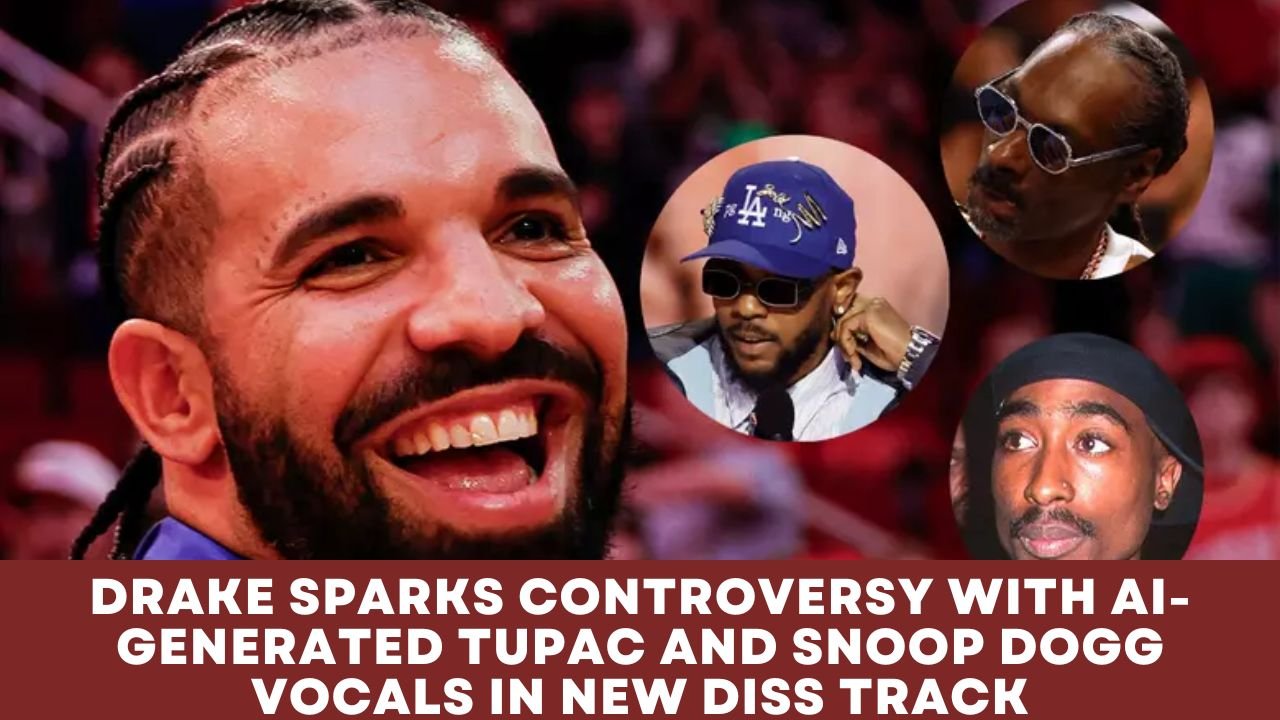In a move that has sent shockwaves through the music industry, Drake has released a new song featuring the AI-generated vocals of the legendary late rapper Tupac Shakur. The diss track, titled ‘Taylor Made Freestyle,’ takes aim at fellow rapper Kendrick Lamar and features artificial intelligence (AI) recreations of Tupac Shakur’s and Snoop Dogg’s voices, sounding eerily similar to the actual artists.
The song was released on Drake’s official Instagram account on Friday night, reigniting the ongoing feud between the two rap heavyweights. As part of the track, the AI-generated versions of Tupac and Snoop Dogg impart advice to Kendrick, who has remained silent since releasing his verse in Metro Boomin and Future’s ‘Like That,’ which sparked the clash.
The use of AI technology in music has been a contentious topic, with many raising concerns about the potential harm to artists’ legacies and the spread of misinformation. While Drake’s latest song leaves no room for doubt about the use of AI, the integration of this technology in other instances raises questions about transparency and authenticity.
What is AI in Music?
Artificial intelligence (AI) in music refers to the use of advanced computer algorithms and machine learning techniques to create, modify, or recreate music and vocal performances. In Drake’s case, AI was used to generate vocals that mimic the voices of the late Tupac Shakur and Snoop Dogg.
This technology has been improving rapidly, making it increasingly difficult to differentiate between original tracks and AI-generated songs. The implications of the unrestricted use of AI in the music industry raise concerns about potential misuse and the erosion of artistic integrity.
The Controversy Surrounding Drake’s Move
While Drake’s decision to use AI-generated vocals has been deemed creative by some, others have criticized it as disrespectful to the legacies of the artists whose voices were recreated without their consent. The use of a deceased rapper’s voice to engage in a personal feud has been particularly controversial, with many questioning the ethical boundaries of such practices.
Snoop Dogg himself, the real one, has responded to the AI-heavy track, expressing his confusion and disbelief in an Instagram video. “They did what? When? How? Are you sure?” he asked, before humorously stating, “I’m going back to bed.”
The Debate on AI in Music
The use of AI in music has sparked a broader discussion about the role of technology in preserving artistic integrity and authenticity. Proponents argue that AI can be a powerful tool for creativity and innovation, allowing artists to explore new frontiers and push the boundaries of what’s possible.
However, critics warn about the potential for misuse, citing concerns about the spread of misinformation, the erosion of artistic control, and the potential harm to artists’ legacies when their work is manipulated without their consent.
The Path Forward
As the entertainment industry grapples with the implications of AI technology, the need for clear guidelines and ethical frameworks becomes increasingly apparent. While AI offers exciting possibilities, its unchecked use in art demands careful consideration to protect the rights and legacies of artists, as well as the authenticity of the creative process.
Moving forward, industry leaders, artists, and policymakers must collaborate to establish best practices and regulations that strike a balance between innovation and respect for artistic integrity. This may include measures such as obtaining consent from artists or their estates before using their likenesses or voices, implementing transparency measures to disclose the use of AI, and fostering open dialogue about the responsible integration of technology in the arts.
In the meantime, Drake’s bold move has ignited a firestorm of reactions, with fans and critics alike weighing in on the ethical implications and potential consequences of this new frontier in music. As the debate continues, one thing is certain: the integration of AI in the arts is no longer a distant possibility, but a reality that demands careful navigation to preserve the essence of creativity and artistic expression.

